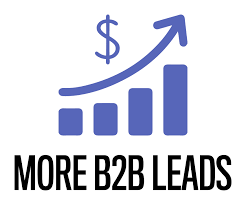B2B Lead Generation: An Essential Guide
In today's rapidly evolving digital landscape, understanding B2B lead generation is crucial for businesses aiming to stay ahead of the curve. With the B2B market becoming increasingly saturated, identifying and engaging potential business customers has become both a challenge and a necessity. This article dives deep into the concept of B2B lead generation, discussing its significance and why quality always trumps quantity when it comes to B2B leads.

What is B2B Lead Generation?
B2B (business-to-business) lead generation refers to the process by which businesses identify and cultivate potential business customers for their services or products. This contrasts with B2C (business-to-consumer) lead generation, where companies target individual consumers.
In the realm of B2B, the decision-making process is often intricate, involving multiple stakeholders within an organization. As such, the journey from being a potential lead to a paying customer can be longer and more complex. Therefore, the strategies for B2B lead generation often differ significantly from B2C strategies.
While both B2B and B2C aim to convert leads into customers, B2B focuses more on building lasting relationships. This is largely because the lifetime value of a B2B customer is often much higher than that of a B2C customer, with contracts that can last for years and generate significant revenue.
Importance of B2B Lead Generation
With the digital age, buyers now have more information at their fingertips than ever before. They're no longer dependent solely on salespeople for solutions. This paradigm shift makes it imperative for businesses to be proactive. By generating quality leads, businesses can:
-
Boost Sales and Revenue: Clearly, more leads mean more opportunities for sales.
-
Expand Business Reach: Lead generation can help businesses tap into new markets and territories.
-
Reduce Cost: Digital lead generation methods, especially inbound techniques, often cost less than traditional advertising.
Why Quality Trumps Quantity in B2B Leads
In the world of B2B lead generation, there's a persistent debate: should businesses prioritize the quantity or the quality of leads? While it might be tempting to focus on sheer numbers, the truth is that not all leads are created equal.
Distinguishing Quality Leads from Generic Ones
A quality lead, often referred to as a "sales-qualified lead," is one that is more likely to convert into a customer. Such leads typically display a genuine interest in your product or service and have the authority or influence to make purchasing decisions.
On the other hand, generic leads might express a cursory interest but aren't ready or don't have the intent to make a purchase. Such leads can drain resources, as they require the same nurturing effort but with a lower return on investment.
The Cost of Low-Quality Leads
Pursuing low-quality leads can be a costly endeavor, both in terms of time and resources. Consider the time your sales team spends on calls, meetings, and email exchanges. If the majority of these efforts are directed towards leads that don't convert, it results in wasted resources and missed opportunities.
Moreover, low-quality leads can skew your analytics, leading to misguided strategies. If your data suggests a high number of leads but low conversion rates, it might prompt unnecessary changes in tactics, while the real problem lies in lead quality.
Quality Over Quantity: The Sustainable Approach
Focusing on high-quality leads ensures a more sustainable business growth. It leads to:
-
Higher Conversion Rates: Quality leads have a higher propensity to convert.
-
Better Customer Relationships: Engaging with interested parties can lead to more meaningful and lasting business relationships.
-
Optimized Sales Efforts: Directing resources towards genuine leads ensures efficient use of time and energy.
B2B lead generation is an intricate process that requires a strategic approach. While it's essential to attract a large pool of potential customers, it's even more crucial to ensure that these leads are of high quality. By understanding the nuances of B2B lead generation and prioritizing quality over quantity, businesses can set themselves up for long-term success in an increasingly competitive market.